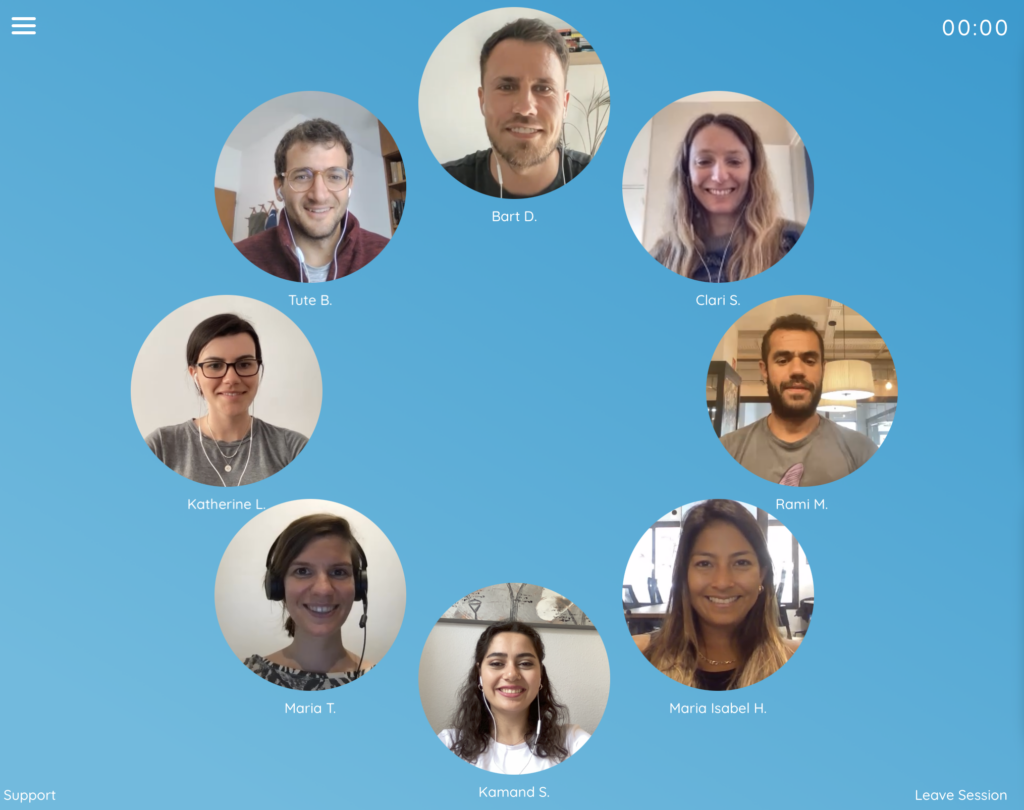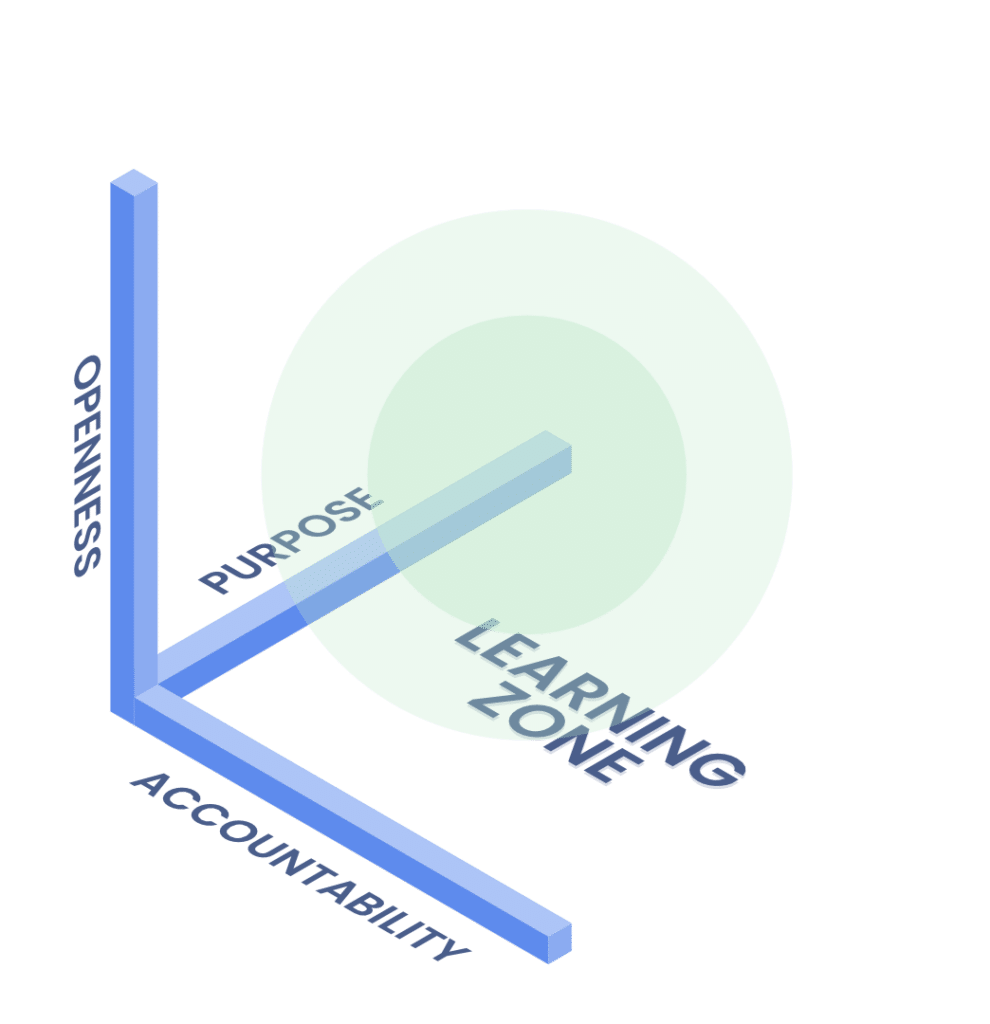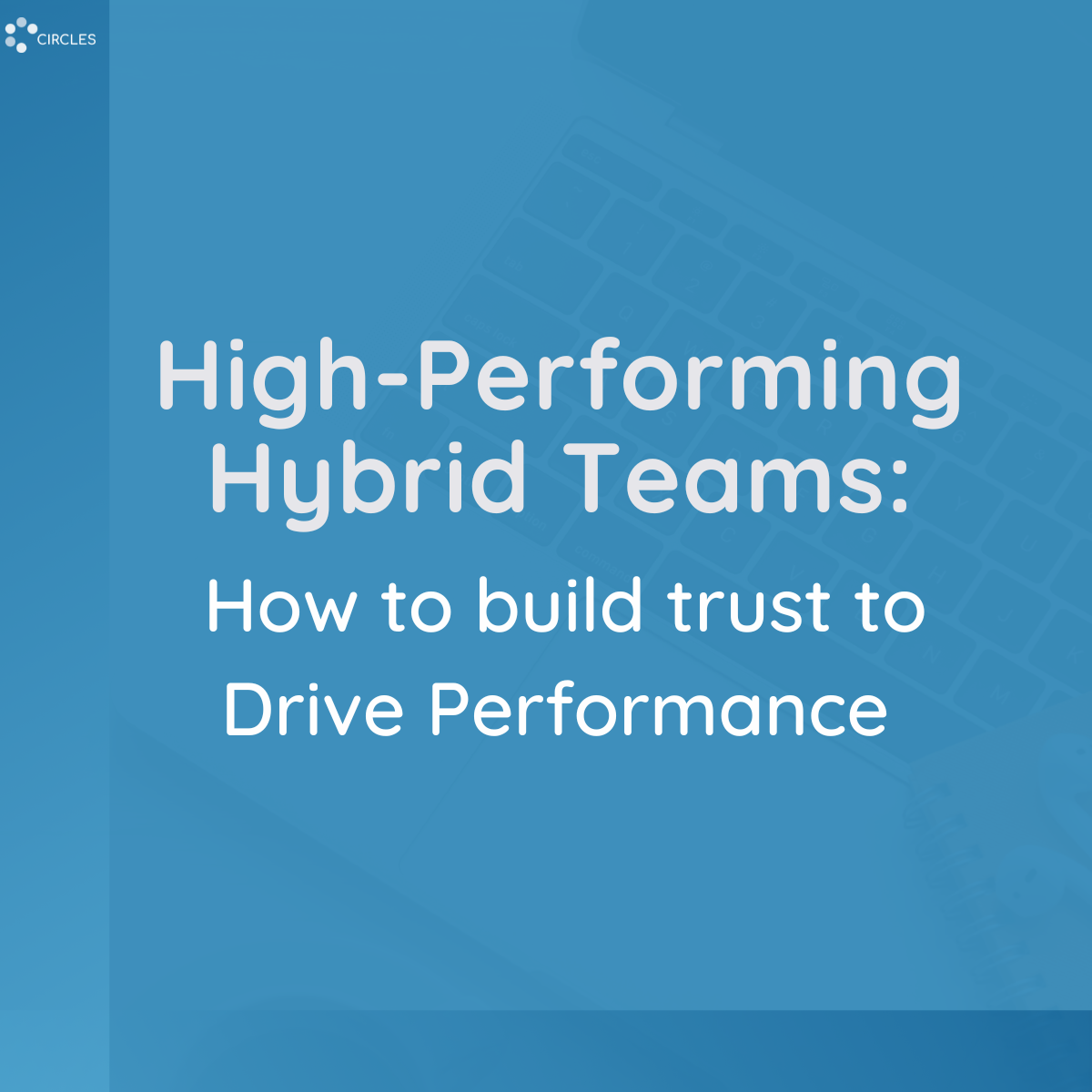With many workplaces settling into hybrid work environments, it’s become increasingly difficult for colleagues to connect. This could negatively affect performance: research shows high-performing teams are 25% more likely to connect with teammates over non-work topics. “The best teams aren’t more effective because they work all the time. On the contrary: they invest time connecting in genuine ways, which yields closer friendships and better teamwork later on.” Outside of meetings, where will authentic conversations happen, in the absence of the lunchroom and the watercooler?

Modern leaders must scale culture across time zones, balancing human-centered core values with performance metrics. They cannot rely on old ways of connection while team trust and effectiveness hangs in the balance. Today’s virtual, distributed workplace needs innovative spaces where teams can build trust through openness, accountability, and shared purpose, while ensuring results.
High Trust Equals High Performance
Experts agree: a trusting company culture characterized by human connection ensures high-performing teams and a thriving business. According to Professor Paul J. Zak, compared with people at low-trust companies, at high-trust companies, employees experience:
- 29% more satisfaction with their lives
- 40% less burnout
- 74% less stress
- 106% more energy at work
In addition to enhancing employee well-being, a trusting workplace culture also increases the bottom line, through:
- 50% higher productivity
- 76% more engagement
Connected employees build trust and improve in collaboration, communication & innovation, and a baseline of trust also affects retention. MITSloan research shows that in trusting workplace cultures, not only are employees a whopping 260% more motivated to work, but also 50% less likely to look for another job. Another famous Zappos study reported that company cultures that value employee connections “generate 4 times more revenue than those with substandard company cultures.”
In other words, thriving people build thriving companies. Because trust is proven to affect everything from employee well-being to revenues and retention, leaders must seek out spaces where hybrid teams can connect in authentic ways.
Essential Elements for Team Trust


Human beings have always gathered in circles, and returning to this ancient practice introduces a new way for virtual teams to connect and build trust. We’ve looked to the work of some of our favorite gurus to help us understand exactly how circles magic works, and synthesized multiple theories into our own “3-Dimensional Trust Framework.” The three essential elements include:
- X Openness: Vulnerability, psychological safety, sincerity
- Y Accountability: Competence, reliability, honoring promises
- Z Shared Purpose: Empathy, care, shared values & intentions
We’ve found that facilitated small group circles operate like little trust microwaves, promoting inclusive conversations as participants quickly build relational trust with each other. Although all three elements aren’t necessarily present in each session, openness, accountability and shared purpose teach and reinforce the elements of trust.
Openness
Authentic human connection is crucial to building trust. After decades of writing NYT best-sellers on vulnerabililty, research professor Brene Brown concludes “We need to trust to be vulnerable, and we need to be vulnerable in order to build trust.”
Safe by Design: The very shape of a circle levels the playing field, and keeping a group’s size between 5-10 people promotes safety. Participants also feel safer to open up when they agree to confidentiality norms. Random order rounds with timers helps ensure that everyone listens and feels heard.
Guidance: The best circles are guided. During the session flow, facilitators invite openness by drawing out participation. Carefully crafted agendas that include questions breed conversation. Before answering, it’s best to give participants time to pause for reflection, as it results in better listening and deeper shares.
With the right structure in place, facilitated circles invite openness and set the stage for accountability.
Accountability
Structure: To layer accountability into a circle, gather small groups in recurring sessions, strongly encouraging regular attendance. Starting and ending sessions on time is another simple way to build trust. Finally, reviewing group data and metrics reinforces a group’s track record together.
The Learning Zone: In psychologically safe circles, participants feel comfortable with both openness and accountability. Harvard Business School’s Amy Edumundson, author of The Fearless Organization, postulates a terrific theory about the “learning zone,” which describes striking a powerful balance between openness and accountability. This ‘learning zone’ is the perfect environment for teams to discover shared purpose in a circle.
Shared Purpose
As teams become accustomed to openness and accountability, they grow in listening to and caring for each other, developing a shared purpose. Sharing struggles often leads to a sense of common challenge, reinforced by dialogue and exchange of help during exploration exercises. Lastly, trusting teams set intentions to follow up and highlight how they fit into the group’s purpose.
A guided, structured small group gathering in a circle inevitably experiences openness, accountability and shared purpose.
CircleSpace: a Safe Space for Hybrid Teams to Build Trust
Our 3D trust model formed as we worked with partners to develop and test CircleSpace over many years, to ensure the openness, accountability, and shared purpose that builds effective teams. CircleSpace includes all the elements for success: facilitators, build-in timers and random order generators, and off-the-shelf agendas and programs designed to build trust. It’s the solution today’s hybrid workers need to stay connected and reach their goals.
Don’t sacrifice the magic of gathering your teams; implement CircleSpace to maximize your investment in an upcoming offsite, or to help you cut costs and go completely virtual. Click here to experience a Circle for yourself!
